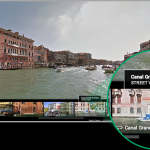Microsoft now fighting the Windows 8.x war on two fronts -- can it win either battle?

According to reports, Microsoft is set to slash the price it charges OEMs for Windows 8.x. This doesn’t necessarily mean you’ll be able to pick up a copy of the tiled OS for any cheaper, but it does mean significant savings for (some) PC builders.
At the moment, Microsoft charges all OEMs $50 per copy of Windows 8. The price cut will see this license figure reduced by 70 percent to $15 per copy. However, there is a caveat -- it will only apply to devices that will be sold for $250 or less at retail. In other words, Microsoft is hoping to kick start a run of lower-priced PCs, in an effort to compete with Chromebooks.
Apple shouldn't be the next Microsoft

In a long, thoughtful post today, Mark Rogowsky writes for Forbes: "No, Apple Is Not Like Microsoft". He responds to arguments put forth by Barclays analyst Ben Reitzes, which Steven Russolillo summarizes in Wall Street Journal post "Four Reasons Apple is the New Microsoft".
I disagree with the original argument and its rebuttal. I encourage you to read both posts. The answer to why one stock soars while another sunders has little to do with market caps, P/E ratios, and other math metrics analysts crunch like gerbils with a new stick. People generally make decisions for emotional reasons -- what feels right to them. As I so often say, in business perception is everything.
The most popular stories on BetaNews this past week February 16 -- February 22

Another week, another spate of security related news. In the latest of a recent run of high-profile hacks, Kickstarter announced that it had been hacked, and it was discovered that ASUS routers could be sharing files with more people than users intended. Google is looking to bolster online security with its latest acquisition -- audio-based authentication outfit SlickLogin, while Microsoft's latest partnership with DocuSign looks set to make digital signatures in Office simpler and more secure. If you were under the impression that app security was generally increasing, think again; a new study shows that an almost unbelievable 96 percent of applications have security issues.
Brian got his hands on the Lenovo Miix 2 and was reasonably impressed by what he saw. He also unboxed the much touted Nokia Lumia Icon and found it to be not dissimilar to the 928 -- no bad thing. Anyone looking for an entry-level 4G smartphone now has the Android-based Samsung Galaxy Core LTE to look forward to, complete with "Jelly Bean Plus".
4 million Brazilian students get Google Apps for Education

While the gold-standard of office suites remains Microsoft's Office, many competitors are trying to catch up. While Libreoffice is a nice alternative, it has failed to truly take off beyond Linux users and people who don't want to spend money or cant afford to buy Microsoft's solution.
However, the biggest competitor lately has been Google. The search giant has been making a push with both web apps (like Google Docs) and Chrome OS. Education institutions have been high on Google's web philosophy as it is cheaper. Today, the search giant announces that it will be providing Google Apps for Education to students in the Brazilian city of São Paulo.
Google Maps travels to India, visits the Taj Mahal

Google has been busy with its Maps service the past couple of days, including a new desktop version, announced yesterday, that will be rolling out soon. But the company has not been too busy for a little vacation, this time traveling to India.
The country is known for many sights, though the most prominent is likely the Taj Mahal, a white marble building that has become a top tourist destination. That wasn't the only place that Google visited, though. 29 more monuments were also included in the new Street View of the country.
Google returns to innovation -- reveals Android prototype, Project Tango

Android handsets are getting a bit stale. Year after year, we get faster specs and bigger screens, but what about innovation? Sure, Samsung has attempted to add features, but those have proven to be more of a gimmick than true innovation. A video pauses when the user looks away? In theory it is cool, but in practice very annoying -- sometimes you look away and want to keep listening to the audio. As an Android fan, I hate to say it, but the fingerprint reader on Apple's iPhone 5s is true quality innovation.
Sadly, even Google's Nexus line has been rather ho-hum. From the Galaxy Nexus to the Nexus 5, its all the same stuff, just minor bumps -- yawn. Today however, Google announces a prototype handset that is so revolutionary, your chest hair may stand on end -- Project Tango.
Google Maps tackles deforestation with new views of the world's woods

I haven't witnessed the devastation of the Amazon, but I've been fortunate, or unfortunate, enough to travel through the American Northwest, a place where "clear-cutting" ran rampant in the 80's. Today's laws have somewhat subsided that practice, but the Oregon and Washington areas are a small sample size on a vast, global scale.
Now Google Maps takes on the issue that faces everyone today -- we need the space, though less-so the paper, and certainly need the oxygen produced. The search giant has put together a new mapping program that is tracking the forests around the world -- or the dwindling numbers of them.
Google rolling out new Maps interface for the desktop

Google continues to enhance its Maps offering, combining it with Street View to bring comprehensive coverage of every possible area -- even trails in national parks. Now the search giant is announcing more improvements will be arriving on customers' desktops very soon.
"It’s now even easier to plan your next trip, check live traffic conditions, discover what’s happening around town, and learn about a new area -- with Pegman’s help if needed", states Brian McClendon, vice president of Google Maps.
Google needs to do something about Nest’s birdbrained support

I purchased four Nest Protect wired smoke detectors direct from Nest at the end of January. I live in the UK, they were shipped from Holland, and so took five days to arrive. No big deal. I got an electrician friend round to fit them, and he made an interesting discovery -- the power cables connected to my existing smoke detectors were dead (the devices still worked as they were running off batteries, and past false alarms showed they were linked together, so there was no safety risk). The only way to connect my new Nest devices was to do a massive rewiring job. I decided to speak to Nest and swap my wired models for wireless battery ones.
You’d imagine this would be a simple and painless task. But Nest, which was recently purchased by Google for $3.2 billion and produces intelligent hardware, has possibly the least intelligent returns policy in place. Four phone calls later, and I still have my wired Nest devices because the company has what has to be a contender for the worst support ever.
Google Fiber explores expansion to more cities

You can't throw a rock without hitting someone who's fed up with their ISP. Services like Comcast are becoming an increasingly worrisome problem in today's world. Google provides its own ISP, but it is sadly only available in rather limited markets. And by limited, we are not kidding, there only three -- Kansas City, Provo and Austin.
However, those cities won't be able to feel special for much longer, because the search giant is considering more locales for its high-end ISP service. "We want to help build more ultra-fast networks. So we’ve invited cities in nine metro areas around the US -- 34 cities altogether -- to work with us to explore what it would take to bring them Google Fiber", states Google's Milo Medin.
Google Capital -- investing in the future

Starting a business can be very tricky. First of all, you need the money to put up in order to get it going. If you have no money, starting from scratch can be impossible. Many people who dream of starting a business probably plan on making money from it. In other words, it is a Catch 22 situation.
Sadly, if you do manage to get your business off the ground, having it be profitable is something else altogether. It is not uncommon for a new business to fold. Even if your business plan and products are solid, that does not guarantee success. However, there may be a new lifeline for innovative young companies. Today, Google announces that it is looking to invest in up-and-coming solid businesses through Google Capital.
Yandex.Kit gives Android vendors a free substitute for Google apps and services

While Android itself is a free, open-source operating system that can be used by any company and individual commercially, the Google apps and services we see bundled on popular devices do not share the same philosophy. Handsets have to be approved by the search giant in order to use the bread and butter of the Android world, which, among other things, includes access to the coveted Play store, and the Gmail and YouTube apps.
Because Google apps and services are not part of Android, we see lots of devices that are sold across the globe without them. Those come from lesser-known vendors, and may be available in anywhere from supermarkets to retail stores in emerging markets. To give those vendors a fighting chance against more popular rivals and increase its reach, Russian tech giant Yandex has announced Yandex.Kit, an Android suite that offers the company's own apps and services as a viable substitute for Google's own offerings on the platform.
Google offers do's and don'ts for classless Glass owners

When I was young, one of my favorite things to do was read Highlights Magazine. If you aren't familiar, it is a magazine designed for kids. Besides looking for hidden pictures, my favorite was Goofus and Gallant. It was a short comic strip that showcased two boys that were polar opposites -- Goofus was a jerk and Gallant was good. For example, Goofus would run with scissors, while Gallant would walk nicely with them.
Unfortunately for Google, it seems owners of its Glass product are far more Goofus than Gallant. In other words, the search-giant seems concerned that rude owners will give Glass a bad reputation. And so, Google has produced a list of do's and don'ts for these knuckleheads.
Google brings the Drive API to Code School

For many people, learning to code or program is very hard. Young computer nerds often dream of becoming programmers, but reality hits them like a ton of bricks when they experience the level of difficulty. Of course, it doesn't have to be difficult. Quite frankly, many factors can cause a student to be overwhelmed by learning, such as a poor teacher or outdated curriculum.
With that said, where there is a will, there is a way. Many discouraged people may find that they can learn to program if they do it at their own pace and think outside the box. This is what makes Code School so intriguing -- students can pick what they want to learn and take it slowly. Today, Google announces that it is partnering with the online school.
Google acquires SlickLogin, the sound-based security startup

Google is delving into its wallet once again, fishing out a little cash and going on a spending spree. This time around, it is Israeli startup SlickLogin that is being put in the shopping cart. You may not have heard of the company, and that’s because its services haven't even launched yet, but it is looking to revolutionize two-factor authentication. Additional layers of security are being added by every website worth its salt, and SlickLogin has an interesting alternative to the traditional password.
Like many other two-factor security systems, this makes use of smartphones -- but in a somewhat different way. Rather than generating a unique code that is emailed out and needs to be typed into a website, SlickLogin is audio-based. A unique sound is generated and played through a computer's speakers. So far, so weird. To make things more interesting, and probably more secure, the sound is inaudible thanks to being ultra-sonic, and an app on a smartphone placed near the speaker picks up the sound and completes the authentication process.
Recent Headlines
BetaNews, your source for breaking tech news, reviews, and in-depth reporting since 1998.
© 1998-2025 BetaNews, Inc. All Rights Reserved. About Us - Privacy Policy - Cookie Policy - Sitemap.